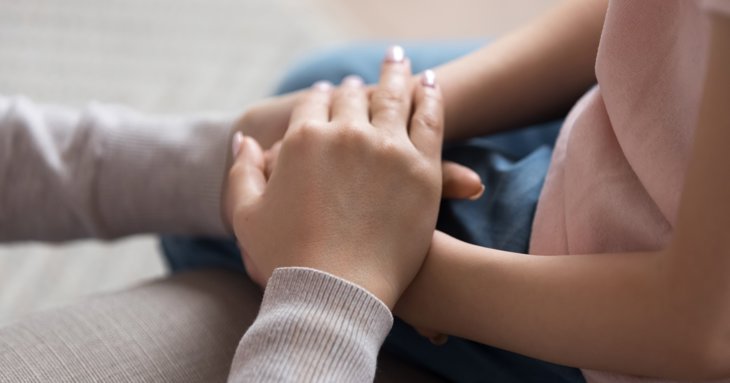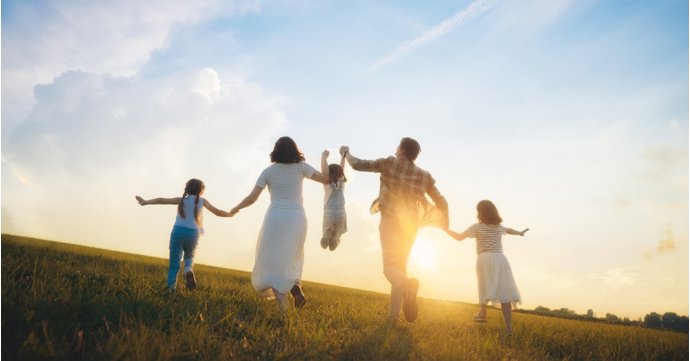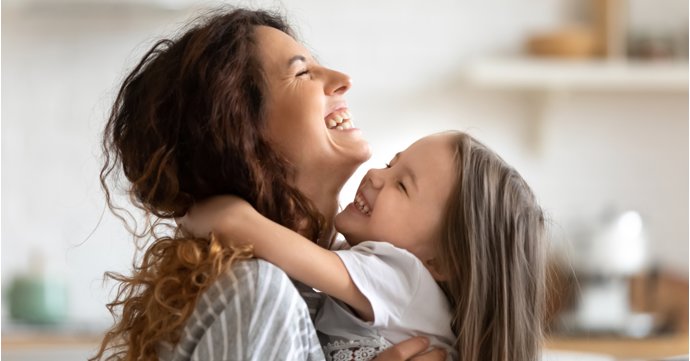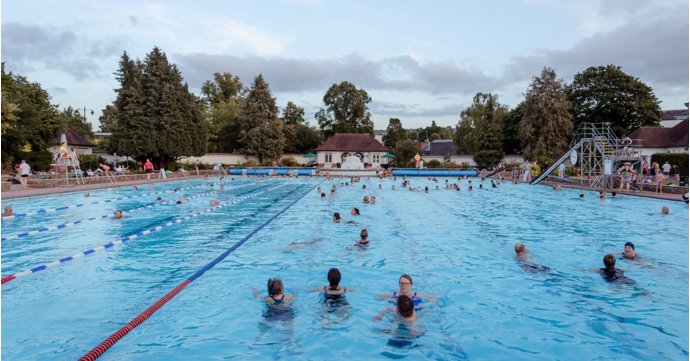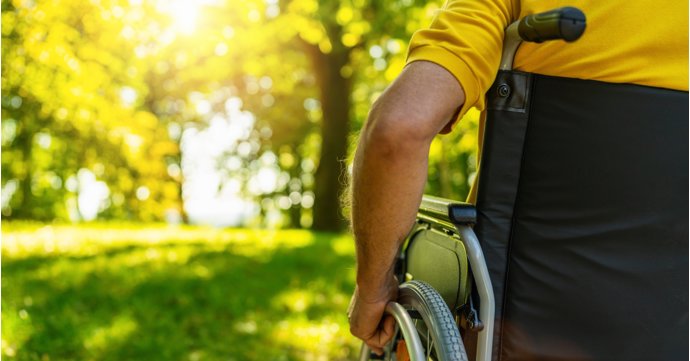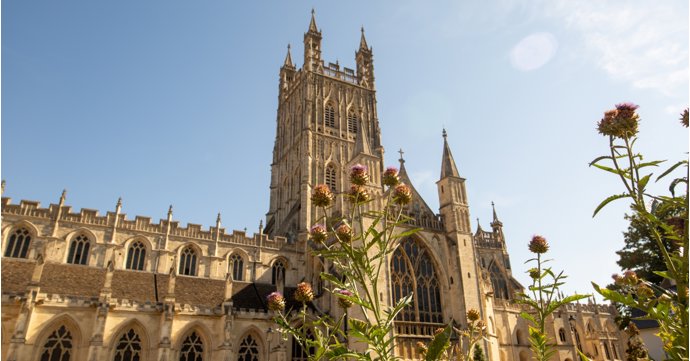Having been a social worker for over 30 years, Jules's decision to foster had always been lingering at the back of her mind as a possibility — up until three years ago, when her personal circumstances changed and she successfully put her application in to Gloucestershire County Council Fostering.
SoGlos caught up with Jules to understand what inspired her fostering journey and gain insight into what it takes to help support young people in emergency care, from building trust to development courses on offer via GCC Fostering.
Can you explain the responsibilities associated with emergency foster care?
First and foremost is the safety and welfare of the child in our care. It's absolutely paramount to communicate well and keep in touch with the social workers, but sometimes they're so busy so I just fire them information that might be helpful to understand the young person, which might help in future planning.
Sometimes young people will say all sorts of stuff, and you just think, 'I wonder if the social worker knows that?' — so I guess we're the eyes and ears of the social worker and we report things in. We keep records of everything that's going on, which we then send in at the end. Sometimes I'll do that every day, rather than wait for the end, because on occasion I just think this is too important.
On top of this, there's the fostering regulations. Oh my goodness, there are so many; and the national minimum standards, we have to adhere to those. And as much as our own social workers are there to keep us on the straight and narrow, we've got to keep pretty savvy enough about it ourselves and do everything a good parent would do.
What strategies do you use to build trust and establish a connection with children who enter emergency foster care?
From the minute they arrive, I will always make sure that I completely zoom in on them. Some young people want to be here, a lot of them don't. And that first interaction is, for me, really vital, to read their emotion enough and interact with it.
For example, there was one young person and she did not want to be here. She was really distressed, begging her social worker to take her home, and that she could stay with her mum or whatever the circumstances were. It was pouring down with rain and the girl walked off down the road. The social worker asked me to go help and I of course said yes, but I didn't want to interrupt because obviously I didn't have any relationship with that young person yet.
We literally stood under a tree about 500 yards from the house. I was thinking to myself please don't walk any further... I'm out without a jacket in the rain! I said, 'God, this is pretty rubbish for you, isn't it?', acknowledging with her what a rubbish situation she finds herself in. And we just stood in the rain for 10 minutes. And then she eventually wandered back with me.
I just let her know that she can just be who she wants to be. You want to chat? You can chat. You want some quiet time to yourself? I completely respect that. You're going through what you're going through. We also get loads of arty bits out and the creative stuff. I'm just here to try and keep you safe for a bit. And that was enough because I think she didn't feel judged. I would have stood out there for a couple of hours with her, I'd wait until she was ready. So I think for me, it's that initial bit.
Another thing is — as I live in a pretty remote area — if I'm walking up the woods with the child, and we have both just fallen over in puddles or we've lost the dog and he's gone wandering off chasing muntjacs or something, you just end up chattering and I take advantage of those situations.
When the dog goes off, I'll explain to them that it makes me anxious and that I get this kind of pang and little turn over in my stomach — then I'll use those sorts of prompts to say, 'when was the last time your stomach was turning over?' and it allows them to then say 'you know what, I was really scared when I came to you and I thought you were really weird.' And I go 'well I thought you were really weird, too, but look at us now, we've both fallen over' — it's about connecting.
Have you pursued any professional development or training courses via GCC Fostering that have helped enhance your skills as an emergency foster carer?
It offers some really cracking training courses. There's one in particular that I really love which was alongside the child psychologist through CAMHS (Child and Adolescent Mental Health Services), taking place over four sessions. It's back to the basics, all about attachment — as life is all about attachments. And that's where it all begins, the blueprint for how we live our lives.
But I think just that way of exploring why a child might be feeling a particular way; what their presenting behaviours might be; their survival strategies from emotional trauma. That course was brilliant — I loved that. The ability to know you can have a consultation with a psychologist, if it's going to help your relationship and your ability to care for a child, that's brilliant.
The courses are just great to guide you through the child's experience, and as you understand, it increases your empathy — I think that GCC Fostering is fantastic for that.
How do you manage the potential emotional challenges associated with emergency foster care?
I suppose after years of being a social worker, I knew the emotional content.
Over the years, I've sobbed over children and their circumstances, and you learn to kind of manage that and do the best that you can. When you have that vulnerable person in your house, you just give it everything — and that's probably why I'm an emergency carer and not a long-term carer. My husband has also been approved as a foster carer and works alongside me. So that's just fantastic.
When I first applied to foster, I saw emergency was the thing that I could do, particularly for teenagers, because teenagers always get a bit of a bad press. I love them. I just think that transition from childhood to adulthood is so hard. I thought, you know, if you're in a pickle, and you're doing a runner at one in the morning; or you want to be chatting until two in the morning; or need picking up from the police station at three in the morning, I can do that.
I feel comfortable with teenagers. Whereas if you hand me a baby, I completely freak out. They could wake up at three in the morning and I'd be like, 'oh my god'. So it's horses for courses, isn't it?
So I did emergency because I knew that I would want to care really intensely. And because I was a single carer, with elderly parents and my granddaughter likes to come and stay. I thought, 'I've got these other bits in my life' and I don't know how to do it all. So I applied and I offered emergency for that 72 hours to allow complete sanctuary and space for the young person. It gives the social workers, the family and the police time to work out if they need something else, then they move on to that.
What aspects of being an emergency foster carer do you find most rewarding?
Just knowing that I can give them time when they arrive. They can be whatever emotion they're feeling — It's all okay. There are so many pressures, particularly on teenagers — you've got to behave in this way; you got to do this; you've got to do that. And they're in so much turmoil in their mind already, without the trauma that some of our foster children have been through. So I think it's the privilege knowing that you're helping them and they'll let me hear their story because they want to share it with me. And that's an amazing honour.
Fostering with your local authority also means that children and young people are kept in their local communities, surrounded by familiar friendly faces and opportunities at a time when things can be stressful and unfamiliar for them.
What advice would you give someone who is thinking of becoming a foster carer?
There are so many different ways you can foster; just like there are so many different children, each and every human being is different — so for me, it's about thinking about what you think you might be able to.
My advice to anybody who has got any remote inclination to consider fostering is to just check it out because there are so many options and variations and ways that you can help. Emergency fostering suits me personally because I'm better in that sort of crisis, knowing this needs to happen; do it now. If I've got to plan something, I'll get worked up about it as I'm not organised enough.
GCC Fostering is brilliant at helping you to explore your options and what will work best for you. And it's about being normal, being who you are and offering the chance to play to your strengths.
Social workers will try and match as best they can, obviously, but there's a real need for more foster carers so that they can actually match people better.


